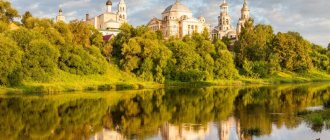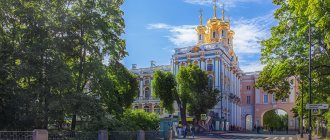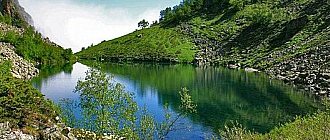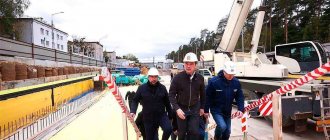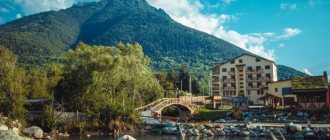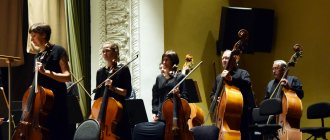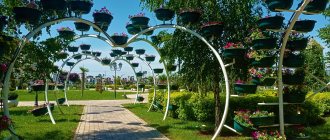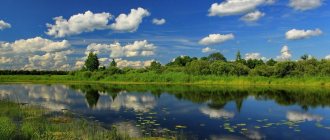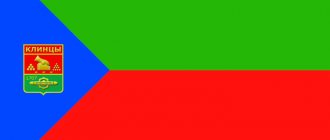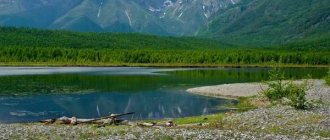What holiday is it today?
December 16, 2021, Thursday
Today are holidays, events: Events that happened on December 16 in the world, in different years Tomorrow: Day of Strategic Missile Forces Day of Employees of the State Courier Service Memorable date in the military history of Russia: Capture of the Ochakov fortress in 1788
Today is the Orthodox holiday of the Prophet Zephaniah. Reverend Savva of Storozhevsky, Zvenigorod. Martyr Angelis... Tomorrow: Great Martyr Barbara and Martyr Juliania of Iliopolis. Venerable John of Damascus...
Today is a national holiday: Day of World Silence and Silence... Tomorrow: Barbarian Day...
Seasons
Seasons, four periods of the year (spring, summer, autumn and winter) characterized by certain average temperatures. The period during which the Sun passes through one of these sectors is called the season. Spring in the Northern Hemisphere and autumn in the Southern Hemisphere begin when the Sun passes through the initial circle of declination and its right ascension is 0° (vernal equinox). Summer in the Northern Hemisphere and winter in the Southern Hemisphere occur when the sun's right ascension is 90° (summer solstice). Autumn in the Northern Hemisphere and spring in the Southern Hemisphere begin when the sun's right ascension is 180° (autumnal equinox). The beginning of winter in the Northern Hemisphere and summer in the Southern Hemisphere is considered to be the winter solstice, when the direct ascension of the Sun is 270°... Next: Seasons. Russian folk calendar. Monthly words...
Folk calendar about every day
Every day one season always replaces another and this determines a person’s way of life. In connection with this, a folk calendar was formed in which there were practically no nameless, unmarked days. Every day was special, had its own purpose. All this was determined by climate conditions and astrological phenomena.
A calendar is a system for counting periods of time. The first calendars arose a long time ago, in ancient times, because there was a need to measure time. The word calendar comes from the Latin words caleo - to proclaim and calendarium - debt book. This is due to the fact that in Ancient Rome the beginning of each month was especially proclaimed, and because it was customary to pay debts on the first day of the month. Different peoples counted time differently. Some calendars are based on the changing phases of the moon - lunar calendars; in others - the change of seasons - sunny; in others, the length of the year was coordinated with the change of seasons, and the counting of months was associated with the phases of the Moon. Such calendars are called lunisolar.
In Rus', the calendar was called a monthly calendar. Every day, the month book covered the entire year of peasant life, “describing” day by day, month after month, where each day had its own holidays or weekdays, customs and superstitions, traditions and rituals, natural signs and phenomena. The cyclical nature of the calendar is reminiscent of human life, where spring is youth, summer is heyday, autumn is the time of harvesting fruits (it’s good if there are some, otherwise you can live your life without collecting fruits), winter is the time of wisdom and peace. This cyclicality and rhythm determined the way of life of the farmer. The folk calendar was an agricultural calendar, which was reflected in the names of the months, folk signs, rituals and customs. Even the determination of the timing and duration of the seasons is associated with real climatic conditions. Hence the discrepancy between the names of the months in different areas... Next: Folk calendar...
Waste
The amount of waste generated has increased since 2010 by more than 0.253 million tons or 20.45%. There was a decrease in the share of recycled waste (by 42.22% since 2010).
Generation, recycling and disposal of waste, million tons
| Year | Index | |||
| education | disposal | storage | burial | |
| 2010 | 1,237 | 0,848 | 0,003 | 0,464 |
| 2011 | 0,656 | 0,296 | — | 0,432 |
| 2012 | 1,290 | 0,813 | 0,001 | 0,507 |
| 2013 | 1,154 | 0,685 | 0,001 | 0,507 |
| 2014 | 0,926 | 0,676 | 0,0 | 0,527 |
| 2015 | 0,777 | 0,521 | 0,0 | 0,481 |
| 2016 | 0,926 | 0,466 | 0,0 | 0,465 |
| 2017 | 1,490 | 0,490 | 0,0 | 0,02 |
In 2021, 18.3% more municipal solid waste was removed than in 2010. MSW was not removed to waste processing plants in 2021.
Fishing calendar for every day
The fishing calendar should not be taken as an absolutely indisputable truth. Fish biting is greatly influenced by a whole range of natural factors, as well as the influence on the nature of man himself. You must not forget that the fish’s bite depends and is determined not only by the calendar dates and biological cycles of their life, reflected in the calendar, but also, no less, by the state of their habitat; the bite also depends on weather conditions: air and water temperatures, cloudiness, wind direction and strength, etc... Next: Fishing calendar...
Cities of the Karachay-Cherkess Republic
Cherkessk is the capital of Karachay-Cherkessia. A typical small cozy town. As you know, subways are built in millionaire cities. There aren't even trams here. City transport is represented by buses and trolleybuses. There is work, but they pay little for it.
Ust-Dzheguta is the second most populous city in Karachay-Cherkessia. 30 thousand people live here. For comparison, this is only 30 apartment buildings. The Great Stavropol Canal begins in Ust-Dzheguta, there is a railway and several enterprises.
Ust-Dzheguta. Photo of the Russian Alps (https://fotki.yandex.ru/users/russianalps/)
Orthodox calendar about every day
Orthodox calendar: Orthodox, Church and Christian holidays.
The church year is an alternation of weekdays and holidays. On weekdays, a person is called to work “by the sweat of his brow to earn his bread.” Holidays are given in order to feel liberation, to rise above the bustle and routine of the world, to feel involved in the highest of worlds, “where there are no illnesses, sorrows and sighs, but endless life.” Since ancient times, holiday cycles have been associated with the seasons. The pagans associated them with the worship of the forces of nature, the cult of which in the Old Testament was replaced by gratitude to the Creator for the universe. And although the connection between holidays and the seasons has not completely lost its power, since God is present in everything, in the plant and animal world, in human works, it nevertheless faded into the background, giving way to a spiritual foundation built on the Sacred Scriptures. The history of Orthodox holidays dates back to the times of the Old Testament. Each of the Orthodox holidays is dedicated to the remembrance of the most important events in the life of Jesus Christ and the Mother of God, as well as the memory of saints... Next: Orthodox calendar...
Content
- 1 Administrative-territorial structure
- 2 Municipal structure
- 3 Urban districts and districts
- 4 Rural and urban settlements of the regions of the Karachay-Cherkess Republic 4.1 Abaza district
- 4.2 Adyge-Khablsky district
- 4.3 Zelenchuksky district
- 4.4 Karachaevsky district
- 4.5 Malokarachaevsky district
- 4.6 Nogai district
- 4.7 Prikubansky district
- 4.8 Urupsky district
- 4.9 Ust-Dzhegutinsky district
- 4.10 Khabezsky district
Russian folk calendar for every day
The word “sign” comes from the word “notice”, i.e. observe. As a result of observing what happens around a person every day, he accumulates life experience. This knowledge was passed down from generation to generation, carefully preserved and people trusted it as a sacred book. Many signs have come to us from the depths of centuries without losing their knowledge. Each of us is free to choose: to dismiss all this as an absurd superstition or to take a closer look at the signs and take the centuries-old experience of generations more seriously. Most of us, when taking exams, ask them to scold them, boasting about some kind of good fortune or luck, spit so as not to jinx them or knock on wood, take a detour if a black cat crossed the road, are afraid of the number 13 and much more. And who among us does not have lucky things, numbers? Who has never resorted to the help of fate at least once in their life, who has not believed in secrets? It’s as if everything connected with signs is hidden somewhere deep in our subconscious. Often we remember them mechanically, unconsciously, or just as a joke. But, undoubtedly, the signs contain a lot of accurate knowledge and practical wisdom of our ancestors. They cover all the characteristic, often difficult to perceive, natural phenomena. Signs have preserved a lot of what was in old folk holidays and customs; they help predict the weather, grow crops... Next: Folk signs...
Rural and urban settlements of the Karachay-Cherkess Republic regions
Abaza district
- Rural settlement Inzhich-Chukun (aul Inzhich-Chukun)
- Rural settlement Kara-Pago (aul Kara-Pago)
- Rural settlement Kubina (Kubina village)
- Rural settlement Psyzh (aul Psyzh)
- Rural settlement Elburgan (Elburgan village)
Adyge-Khablsky district
- Rural settlement of Adyge-Khabl (Adyge-Khabl village)
- Rural settlement of Apsua (Apsua village, Baralki village, Dubyansky farm, Sparta village)
- Rural settlement Grushka (Grushka village, Abaza-Khabl village, Malo-Abazinsk village, Tapanta village)
- Rural settlement Sadovoye (Sadovoye village)
- Rural settlement Staro-Kuvinsk (aul Staro-Kuvinsk, aul Vako-Zhile)
- Rural settlement Ersakon (Ersakon village, Kiev-Zhuraki village, Novo-Kuvinsk village)
Zelenchuksky district
- Rural settlement Arkhyz (Arkhyz village, Nizhny Arkhyz village)
- Rural settlement Dausuz (Dausuz village, Nizhnyaya Ermolovka village, Khusa-Kardonik village)
- Rural settlement Zelenchukskoye (village Zelenchukskaya, Leso-Kyafar farmstead)
- Rural settlement Ispravnoye (Ispravnaya village, Novo-Ispravnsky farm, Frolovsky farm)
- Rural settlement Kardonikskoye (stanitsa Kardonikskaya)
- Rural settlement Kyzyl-Oktyabr (aul Kyzyl-Oktyabr)
- Rural settlement Marukha (village Marukha)
- Rural settlement Storozhevoye (Storozhevaya village, Ilyich village, Kobu-Bashi village)
- Rural settlement Khasaut-Grechesky (village Khasaut-Grechesky)
Karachaevsky district
- Urban settlement New Karachay
- Pravokubanskoye urban settlement
- Rural settlement Verkhnyaya Mara (Verkhnyaya Mara village)
- Rural settlement Verkhnyaya Teberda (Verkhnyaya Teberda village)
- Rural settlement Jingirik (aul Jingirik)
- Rural settlement Kamennomost (Kamennomost village)
- Rural settlement Kart-Dzhurt (aul Kart-Dzhurt)
- Rural settlement Kosta Khetagurova (village named after Kosta Khetagurova, Vostok farmstead)
- Rural settlement Kumysh (Kumysh village)
- Rural settlement Nizhnyaya Mara (aul Nizhnyaya Mara)
- Rural settlement Nizhnyaya Teberda (aul Nizhnyaya Teberda)
- Rural settlement Novaya Teberda (aul Novaya Teberda)
- Rural settlement Uchkulan (Uchkulan village, Verkhniy Uchkulan village)
- Rural settlement of Khumara (aul Khumara, Belaya Gora village, Kubran village)
- Rural settlement Khurzuk (aul Khurzuk)
Malokarachaevsky district
- Rural settlement of Jaga (village of Jaga)
- Rural settlement Kichi-Balyk (village Kichi-Balyk, village Khasaut)
- Rural settlement Krasny Vostok (village Krasny Vostok)
- Rural settlement Krasny Kurgan (Krasny Kurgan village, Aksu village, Kommunstroy village)
- Rural settlement Kyzyl-Pokun (Kyzyl-Pokun village)
- Rural settlement Pervomaiskoye (Pervomaiskoye village)
- Rural settlement Rimgorskoye (village Rimgorskoye)
- Rural settlement Terese (Terese village)
- Rural settlement Uchkeken (village Uchkeken, village Vodovod)
- Rural settlement Elkush (Elkush village)
Nogai district
- Rural settlement Adil-Khalk (aul Adil-Khalk)
- Rural settlement Ikon-Khalk (village Ikon-Khalk, village Kyzyl-Togai)
- Rural settlement Erken-Khalk (Erken-Khalk village)
- Rural settlement Erken-Shakhar (Erken-Shakhar village, Kuban-Khalk village)
- Rural settlement Erken-Yurt (Erkin-Yurt village, Evseevsky farm)
Prikubansky district
- Urban settlement Udarny
- Rural settlement Druzhba (Druzhba village, Zarechny village)
- Rural settlement Znamenka (village Znamenka)
- Rural settlement Ilyichevskoye (village Ilyichevskoye, village Prigorodnoye)
- Rural settlement Kavkazskoye (Kavkazsky village, Krasivy village)
- Rural settlement Mayskoye (village Maysky, Rodnikovsky farm)
- Rural settlement Michurinskoye (Michurinsky village, Vodorazdelny village)
- Rural settlement Nikolaevskoye (village Nikolaevskoye, village Privolnoye, village Pristan)
- Rural settlement Oktyabrskoye (Oktyabrsky village, Novy village, Solnechny village)
- The rural settlement of Schastlivoe (the village of Schastlivoe, the village of Svetloe, the village of Kholodnorodnikovskoye, the village of Kholodnorodnikovsky)
- Rural settlement Tallyk (Tallyk village)
- Rural settlement Chapaevskoye (Chapayevskoye village)
Urupsky district
- Urban settlement Mednogorsky
- Rural settlement of Zagedan (Zagedan village, Damkhurts village, Phiya village)
- Rural settlement Kurdzhinovo (Kurdzhinovo village, Asian village, Psemen village, Rozhkao village)
- Rural settlement Kyzyl-Urup (Kyzyl-Urup village)
- Rural settlement Pregradnaya (stanitsa Pregradnaya, Bolshevik farmstead)
- Rural settlement Predgornoye (Pedgornoye village, Ershov farmstead, Pervomaisky farmstead, Podskalnoye village)
- Rural settlement Urup (Urup village)
Ust-Dzhegutinsky district
- Urban settlement of Ust-Dzheguta
- Rural settlement Vazhnoe (Vazhnoe village)
- Rural settlement Gyuruldeuk (aul Gyuruldeuk)
- Rural settlement of Dzheguta (Novaya Dzheguta village, Dzheguta village, Kyzyl-Kala village)
- Rural settlement Koidan (Koidan village)
- Rural settlement Krasnogorskaya (stanitsa Krasnogorskaya)
- Rural settlement Sary-Tyuz (aul Sary-Tyuz)
- Rural settlement Eltarkach (Eltarkach village)
Khabezsky district
- Rural settlement Ali-Berdukovskoye (Ali-Berdukovsky village)
- Rural settlement Bavuko (village Bavuko, Novo-Khumarinsky village)
- Besleney rural settlement (Besleney village)
- Rural settlement Zhako (aul Zhako)
- Rural settlement Zeyuko (aul Zeyuko)
- Rural settlement Inzhichishkho (aul Inzhichishkho)
- Rural settlement Kosh-Khabl (aul Kosh-Khabl)
- Rural settlement Maly Zelenchuk (Maly Zelenchuk village)
- Rural settlement Psauchye-Dakhe (Psauchye-Dakhe village, Abazakt village, Kyzyl-Yurt village)
- Rural settlement Khabez (Khabez village)
Holiday calendar, dates and events of the year
All state and professional holidays in Russia, including significant World and International holidays, and other equally interesting holidays and events about every day.
The holiday has always kept pace with the history of mankind. Social time can be divided into three types: everyday life (weekdays), weekends and holidays. Everyday life is a series of practices repeated day after day and every day (work). Weekends are regular breaks from the rush of everyday life. It is believed that on weekends a person should restore his strength after working days. Day off, non-working day. A holiday is a day of celebration established in honor or in memory of someone or something. A day or series of days celebrated by the church in memory of a religious event or saint... Next: Calendar...
Political situation
On July 30, 2008, Russian President Dmitry Medvedev submitted to the People's Assembly (Parliament) of Karachay-Cherkessia the candidacy of Boris Ebzeev to vest him with the powers of the president of the republic. Ebzeev has worked as a judge of the Constitutional Court since 1991. On August 5, 2008, at an extraordinary session of deputies of the People's Assembly, Boris Ebzeev was unanimously given the powers of the President of Karachay-Cherkessia, and on September 4 he officially took office.
On February 26, 2011, B. S. Ebzeev resigned of his own free will. On the same day, Rashid Temrezov, head of the federal state institution “Department of Federal Highways on the Territory of the Karachay-Cherkess Republic of the Federal Road Agency,” was appointed acting President of Karachay-Cherkessia.
On February 28, 2011, the President of Russia submitted Temrezov’s candidacy for consideration by the People’s Assembly of Karachay-Cherkessia to vest the powers of the head of the republic. His candidacy was approved on March 1.
Prayer book, Orthodox prayers for every day
Prayer is the most powerful means for healing all illnesses - both physical and mental. Prayers can be laudatory or grateful, petitionary and repentant. If we have offended God, sinned, we must ask Him for forgiveness, that is, repent. Such prayers are called repentant prayers. If everything is fine with us, if we and our loved ones are healthy and prosperous, if we have a place to live, something to wear, something to eat, we must glorify and thank God for this. Such prayers are called praise or thanksgiving. If some misfortune, illness, trouble or need happens, you need to ask God for help. Such prayers are called petitionary... Next: Orthodox prayers...
Zodiac, astrological, eastern calendar. Zodiac signs
In ancient times, to establish the calendar, priests used knowledge of the positions of all the planets. Before the reform of Peter 1, the New Year was celebrated on the Day of the Autumn Equinox. On this day, according to ancient legend, the most peaceful treaty was concluded between the Great Race (ancient Slavs) and the Great Dragon (ancient Chinese) and it was approximately 7518 years ago... For the ancient Slavs, the calendar month corresponded to the lunar cycle from new moon to new moon, taking into account such Thus, the relationship of the entire annual cycle with astronomical and natural phenomena. There was no coherent calendar system. The main natural phenomena are still considered to this day to be the days of the solar equinox and solstice - the Slavic holidays Maslenitsa, Kupala, Ovsen and Kolyada. But during the time of Peter 1, all ancient Slavic calendars were abolished and a new Western European calendar from the Nativity of Christ (Julian calendar) was introduced, while the beginning of the calendar was moved to January 1. The Julian calendar (old style) did not take leap days into account and accumulated one extra day every 128 years. After the October Revolution in 1918, the Gregorian calendar (new style) was introduced in Russia, according to which an amendment of 13 days was introduced. The calendar of the ancient Slavs was based on two planets: the Sun and the Moon. And now they don’t use anything at all. The calendar has become static. There is no such thing as the calendar, it turns out, resting on some planet. Nobody even knows about it. There are just some standard numbers, there are months and holidays. The calendar is based on the Sun and Moon. Why is this so? Because these two luminaries influence the Earth. The Earth revolves around the Sun, and the Moon revolves around the Earth. And these two luminaries create the atmosphere on the planet. From here the calendar is built... Next: Astrological calendar...
It is located in the south of the European part of Russia (the northern slope of the Greater Caucasus). Most of the territory is occupied by mountains. It borders with the Krasnodar and Stavropol territories, the Kabardino-Balkarian Republic, and in the south with Georgia. It is part of the North Caucasus Federal District. The capital is Cherkessk.
On January 12, 1922, the Karachay-Cherkess Autonomous Region was formed (part of the South-Eastern Region, then the North Caucasus Territory of the RSFSR). On April 26, 1926, the region was divided into the Karachay Autonomous Region and the Circassian National District (since April 30, 1928 - the Circassian Autonomous Region). On October 12, 1943, the Karachay Autonomous Region was abolished. On January 9, 1957, a single Karachay-Cherkess Autonomous Region was formed as part of the Stavropol Territory. On July 3, 1991, the Karachay-Cherkess Autonomous Region seceded from the Stavropol Territory and was transformed into the Karachay-Cherkess Soviet Socialist Republic within the RSFSR. On December 25, 1992, it was renamed the Karachay-Cherkess Republic.
Mineral resources: oil, copper-pyrite and polymetallic ores, small gold-bearing placers, coal, granite, marble of various colors, cement raw materials, limestone, refractory clays, chalk, sands, clays, etc. There are large reserves of Narzan-type mineral waters and thermal springs.
Main industries: chemical and petrochemical, mechanical engineering, light industry, woodworking, mining industries. Enterprises: OJSC NK Rosneft - Karachaevo-Cherkessknefteprodukt, OJSC Cherkessk Chemical Production Association named after. Z.S. Tsakhilova", "Microcomponent", OJSC "Karachaevsky Urupsky Mining and Processing Plant".
Agriculture is dominated by livestock farming, fruit growing, production of wheat, barley, sunflower, sugar beets, etc.
Road transport is the main mode of communication and cargo transportation. Roads of federal and republican significance (including the main federal highway Nevinnomyssk - Cherkessk) and the Nevinnomyssk - Dzheguta railway pass through the territory of the republic. There are no airports or water transport in the region. The nearest airports are in. Stavropol and Mineralnye Vody (Stavropol Territory).
On the territory of the republic there are the Teberdinsky Reserve, the south-eastern forestry of the Caucasian State Reserve, 9 reserves (federal zoological “Dautsky”, “Arkhyzsky”, “Damkhurts”, “Cheremukhovsky”, “Chiliksky”, “Khasautsky”, “Elburgansky”, “Labinsky” ", "White Rock"), 74 natural monuments of republican significance. resorts Dombay, Arkhyz, etc. -
Dream books online, interpretation of dreams
A dream book is nothing more than an interpreter of dreams and dreams, a translator of dreams. Since ancient times, people have been using dream books; dreams have always been given great importance, and people have often noticed the prophetic properties of some dreams. The dream book can become your faithful assistant every day and throughout your life, thanks to the dream interpreter you can always make the right decisions, the dream book will help you resist temptations in time, and will warn you against wrong steps and frivolous actions. Further…
